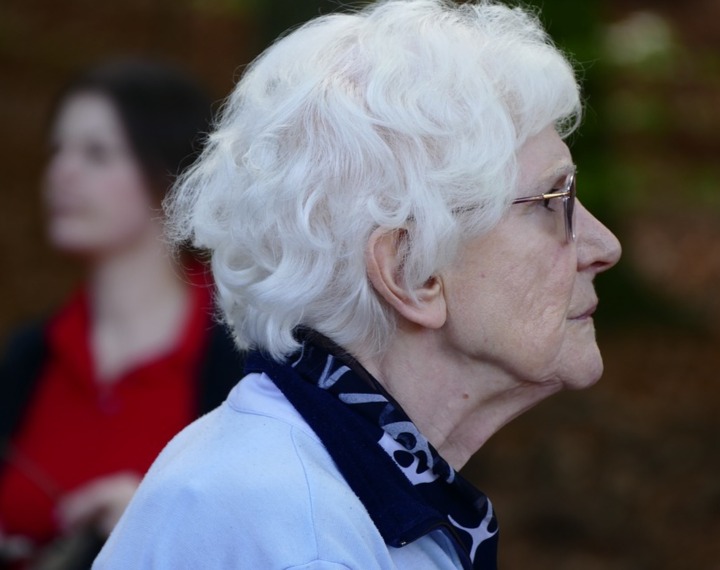The Psychological Benefits of Friendship for Seniors
 Loneliness is a common problem facing seniors across the UK, and the wider world. Studies have revealed that 17% of seniors are in contact with friends, relatives or neighbours once a week, with 11% in contact just once a month. With over half of all people aged over 75 living alone, these statistics demonstrate just how prevalent loneliness in old age can be.
Loneliness is a common problem facing seniors across the UK, and the wider world. Studies have revealed that 17% of seniors are in contact with friends, relatives or neighbours once a week, with 11% in contact just once a month. With over half of all people aged over 75 living alone, these statistics demonstrate just how prevalent loneliness in old age can be.
According to Age UK, two-fifths of older people (3.9 million) in the UK say that television is their main form of company. Statistics suggest that the main group of older adults at risk of loneliness are the ones living with health problems, with 59% of older adults who suffer from poor health feeling lonely, whereas just 21% of older adults who are healthy report feeling lonely at one time or another.
The fact is that loneliness is a bigger problem than a person’s emotions, it can also have a psychological impact on a person’s mental health and wellness. Interestingly, loneliness increases a person’s risk of early death by the same percentage as smoking 15 cigarettes a day - that is how harmful being lonely can actually be.
Bearing in mind that loneliness is a serious problem, it’s vital that loneliness is tackled head on. The question is, of course, how can feelings or loneliness and isolation be prevented? Friendship is the answer to tackling these issues, so with that in mind, below is a guide to the psychological benefits of friendship for seniors, tips for building friendships, and ways that communities can do more to support seniors who are lonely or at risk of loneliness.
What are the psychological benefits of friendship?
Research has revealed that people (especially seniors) who have a close group of friends - or even one friend - tend to live longer than people that don’t. This is because they have healthier minds and are less prone to mental health problems, are more likely to survive serious illnesses like cancer and heart problems, and get fewer colds. Of all the benefits that friendship offers, the mental health ones are the most vital, with the question being, what are these benefits and how can they be achieved?
- Friendship can increase a person’s sense of belonging and purpose.
- Having a close friend can boost happiness and reduce stress.
- Friendship can improve self-confidence and self-worth.
- A person’s friends can help them to cope with trauma, such as illness, loss of a loved one, and divorce.
- Having a friend can make you more likely to take care of yourself and your health.
What are the best methods of building friendships with seniors?
A one-size-fits-all approach isn’t the right one...
- The most important factor to bear in mind when attempting to tackle loneliness is that seniors are not all the same, and so, different methods need to be used for different people when it comes to preventing loneliness.
- For each individual, start with their age and interests, and determine whether it’s just loneliness that is the issue or also isolation.
Talking is key
- For building friendships, talking is key. Whether the senior in question lives in their own home or in a care home, it’s vital that you take the time to build up a relationship with them.
- Ask them questions about themselves and their lives. Talk to them about topics that interest them. Ask them what would make them happy. Clear communication is key.
Plan activities
- One of the best ways to improve the life of someone who is lonely is to get them out of the house and ensure that they have fun. Using what they’ve told you about their interests, find activities to do that they would enjoy.
- Do they love to read? Sign them up for a book club and go along with them. Are they a keen cook? Look into cooking classes for seniors? Have they always enjoyed staying active? Look into sports that are appropriate for their mobility levels - boules could work well, as could pilates or yoga.
How can communities do more to support seniors that are lonely?
Loneliness is a problem that should be taken seriously in every community, with people of all ages doing their part to help seniors at risk of loneliness. Here are some ideas for doing so:
- Open day care centres where seniors can go to see their friends, meet new people and have some fun. All the best day care centres offer activities like art therapy, pet therapy, cooking classes, and other activities that offer mental stimulation which can be beneficial for seniors with a range of health problems, from dementia to arthritis.
- Run volunteering projects where local people can opt to volunteer as a friend for a senior who is suffering from loneliness. Friendship projects offer a great way to help beat loneliness, as they give seniors living at home and in care homes, the chance of making new friends.
- Good old fashioned street parties were a way that a lot of people met their neighbours and became friends in the 40s, 50s, and 60s. So organising one today, could be a great way to help seniors in the local area, as well as people of other ages, to meet new people and make new friends.
- A lot of schools now have friendship benches, where a child can sit when they have no one to play with, and then other children see that they are lonely and invite them to play with them. Perhaps using the same concept in local parks and other communal areas could work well? Incorporating benches where people can sit when they are lonely, could be a great way for friendships to be built within communities.
- Business could run senior internship projects. For seniors who are mobile, internships at local businesses could be the answer. A way for older members of the community to integrate back into the daily life of other community members, while staying active.
There you have it, a guide to the psychological benefits of friendship for seniors, and ways that individuals and entire communities can help to prevent loneliness and isolation in seniors through friendship.





